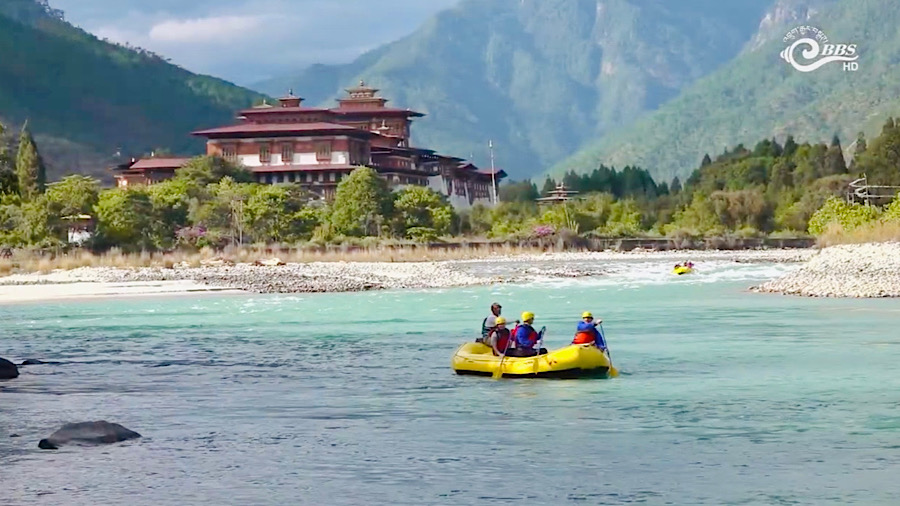 If you drive by the Phochhu and Mochhu rivers in Punakha, you’ll spot men preparing rafts and paddling—these are the rafting instructors who earn their livelihood from the river. This year, eight of them have been certified as international-level river rafting guides. Beyond providing thrilling experiences and ensuring safety, they also act as river guardians, managing waste and reporting illegal activities.
If you drive by the Phochhu and Mochhu rivers in Punakha, you’ll spot men preparing rafts and paddling—these are the rafting instructors who earn their livelihood from the river. This year, eight of them have been certified as international-level river rafting guides. Beyond providing thrilling experiences and ensuring safety, they also act as river guardians, managing waste and reporting illegal activities.
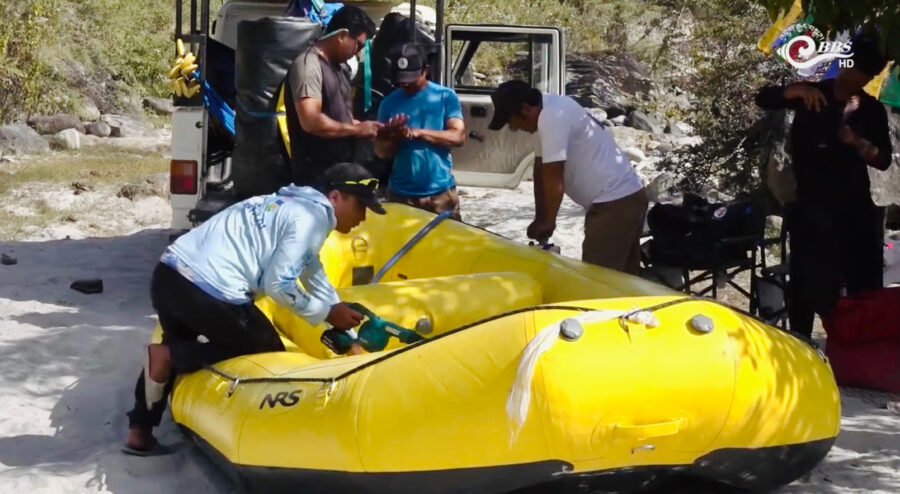 It is about 10 in the morning by the Phochhu River, and rafting instructors from Xplore Bhutan are preparing their rafts. They have a long day ahead.
It is about 10 in the morning by the Phochhu River, and rafting instructors from Xplore Bhutan are preparing their rafts. They have a long day ahead.
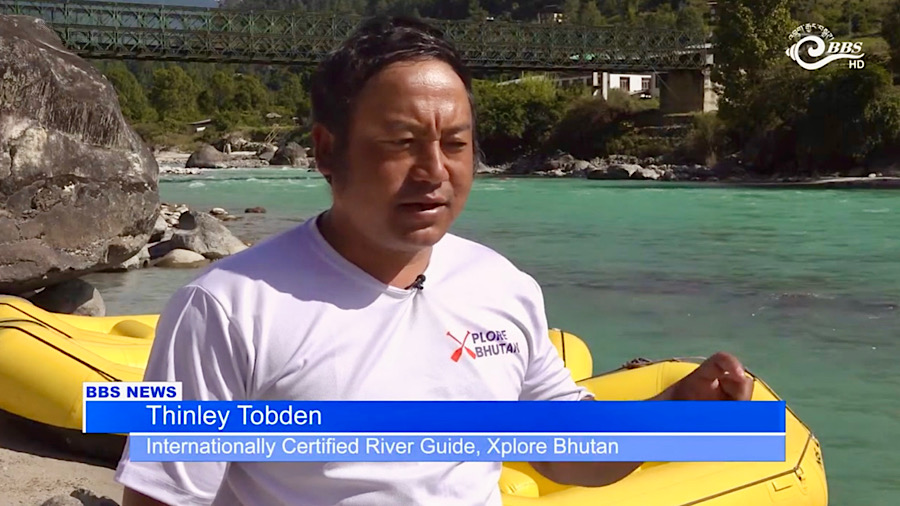 Thinley Tobden, a senior with nearly 19 years of experience in the industry, says their responsibility goes beyond safely guiding clients. It also includes protecting the environment and the wildlife along the rivers.
Thinley Tobden, a senior with nearly 19 years of experience in the industry, says their responsibility goes beyond safely guiding clients. It also includes protecting the environment and the wildlife along the rivers.
Managing trash is a significant responsibility. Thinley shared that the two-week training earlier this year has enhanced both his sense of responsibility and his skills.
With this certification, they are also qualified to certify other guides at the international level.
“The most important thing I learned from the training is they have a training called ‘Leave No Trace,’ which is exceedingly helpful for not just river guides like us but the entire community. I think we should apply and follow Leave No Trace.”
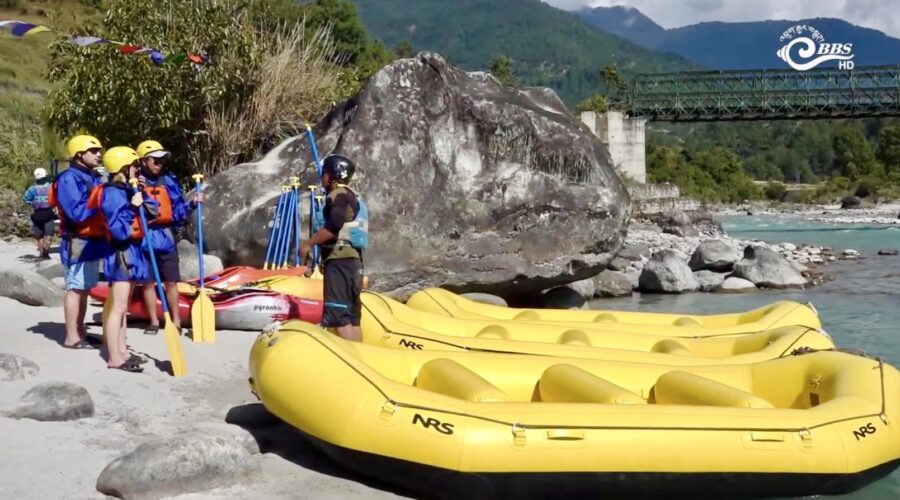 Their work begins with briefing guests before heading down the river. Besides guiding, they also contribute to community services.
Their work begins with briefing guests before heading down the river. Besides guiding, they also contribute to community services.
They have reported drowning and accident cases and assisted the police with search and rescue operations.
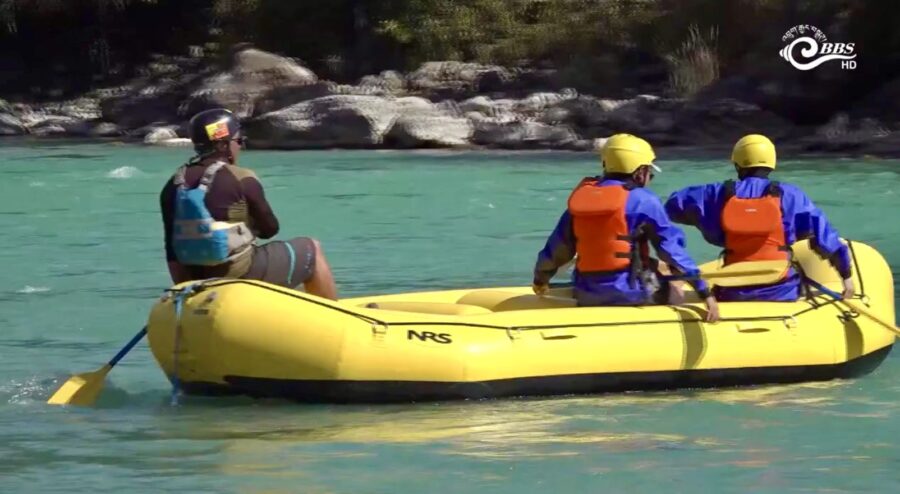 They paddle guests safely to the shores near Punakha Dzong, repeating the journey up to five times a day.
They paddle guests safely to the shores near Punakha Dzong, repeating the journey up to five times a day.
“Since the first day we were here, we wanted to go rafting because we heard it’s very famous in Punakha. So, it was such a great experience. It started with a very professional briefing by our guides and the team,” said Jakob Ramoser, a tourist.
Kinley Dorji, another internationally certified guide, highlighted the growing issues along the rivers.
During the off-season, these river guides also organise cleaning campaigns.
“While taking clients down, whenever we see some garbage, we feel insecure and ashamed to show our country from the riverside. So, I request Bhutanese not to litter along the rivers. Our guests turn their heads and look away when they see trash along the river. When they react like that, we should know better.”
They said the issue appears to be increasing along many rivers across the country.
“We need to work together because, recently, I paddled the lower ThimphuChhu, which is not good for foreign paddlers. In recent years, it was quite good, but last time when we were there, we could see a lot of plastic and prayer flags. So there’s a lot of waste down there,” said Thinley Tobden, an internationally certified river guide at Xplore Bhutan.
Thinley also added that there is a lack of basic amenities in Bhutan for guests along the rivers.
“I also work in Japan, the North Island of Japan. That is Hokkaido. There is a vast difference between the river system in Japan and Bhutan. At the starting point, you have a proper toilet, washing room, and everything for the guests, and everything is facilitated at the endpoint, such as the changing tent and the shower. Moreover, you can’t find trash in Japan.”
Meanwhile, the Department of Tourism is collaborating with local stakeholders to provide essential amenities. As efforts continue to improve infrastructure and preserve the rivers, these dedicated guides remain committed to protecting Bhutan’s natural beauty while offering unforgettable experiences to visitors.
Devika Pradhan & Changa Dorji
Edited by Tandin Phuntsho








